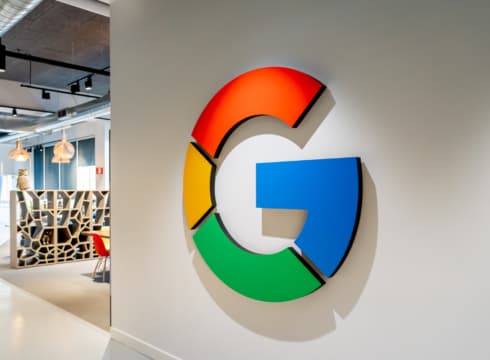Google’s alleged anti-competitive agreements barred smartphone manufacturers from producing Android forks, ASG Venkatraman said
CCI argued that Google’s agreements pushed the end users to digital addiction
Google is in dock for its alleged anti-competitive practices and is currently liable to pay a fine of INR 2,274 Cr
Inc42 Daily Brief
Stay Ahead With Daily News & Analysis on India’s Tech & Startup Economy
The Competition Commission of India (CCI) on Monday (March 13) told the National Company Law Appellate Tribunal (NCLAT) that companies that did not sign the tech major’s agreements and created their version of Android went extinct.
Arguing for the competition watchdog, Additional Solicitor General N Venkatraman said that Google’s alleged anti-competitive agreements barred smartphone manufacturers from producing Android forks.
Android forks are versions of the OS that are built on the same open-source code but are not certified by Google.
Noting that various contracts signed by Google with manufacturers were inextricably linked with each other, ASG Venkatraman said that these agreements were organised in such a way that they would ensure that the smartphone user would end up using revenue-generating Google products.
Pointing out Google’s Mobile Application Distribution Agreement (MADA), Revenue Sharing Agreement (RSA) and Anti- Fragmentation Agreement (AFA), he alleged that Google’s agreements were leading the end user to ‘digital addiction’.
While MADA makes it mandatory for OEMs to pre-install Google apps, RSA refers to revenue sharing agreement, pertaining to pre-installed apps, between Google and OEMs. On the other hand, AFA simply bans OEMs from developing Android forks.
ASG further termed Google’s contracts with manufacturers as unilateral, adding that these contracts were forcing OEMs to give up their right to produce and develop Android forks.
The competition watchdog also argued that these agreements could not be signed individually, which forced the OEMs to sign all the agreements to get Google’s certification for their products. CCI also said that the tech major had ‘total control over every aspect of a device’ as only the tech major could certify an Android smartphone as a ‘qualified device’.
Meanwhile, ASG N Venkatraman is expected to continue arguing for the CCI on Tuesday (March 14). The matter is being heard by a two-member NCLAT bench headed by Justice Ashok Bhushan and Alok Srivastava.
The statements came as the CCI argued its side before the tribunal, right after Google concluded presenting its case before the NCLAT earlier this month.
At the core of the matter is the CCI’s sweeping back-to-back two penalties imposed on Google for anti-competitive practices in the Android devices market and its Play Store policies. The competition watchdog has so far fined a cumulative penalty of INR 2,274 Cr on the tech giant.
Subsequently, Google moved NCLAT seeking quashing of the ruling but was turned down by the tribunal. Afterwards, the tech major again knocked on the doors of the Apex Court to seek relief in the matter. The SC again ruled in favour of the CCI and the case was again sent to the NCLAT for an in-depth hearing.
Since then, the two sides have vociferously debated over the matter even as Google has announced a slew of changes to its Indian operations and Play Store policies.
So far, Google has claimed that CCI plagiarised part of its ruling from a similar report by the European Commission while calling the penalty an ‘unfair imposition.’ Google has also claimed that a mere nudge to promote one’s app could not be construed as foreclosing the market for rivals.
{{#name}}{{name}}{{/name}}{{^name}}-{{/name}}
{{#description}}{{description}}...{{/description}}{{^description}}-{{/description}}
Note: We at Inc42 take our ethics very seriously. More information about it can be found here.


